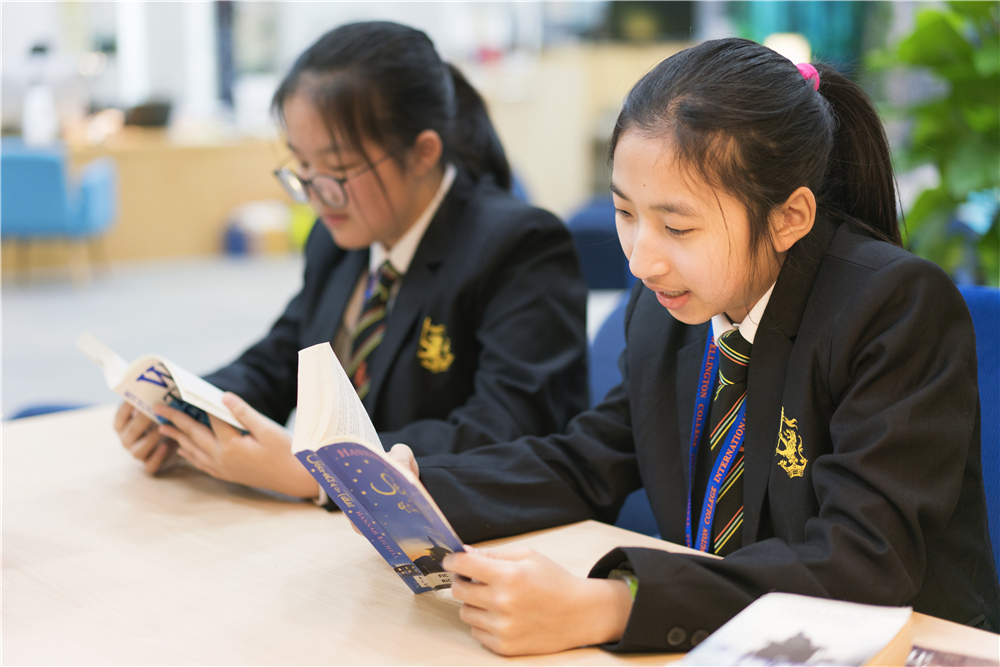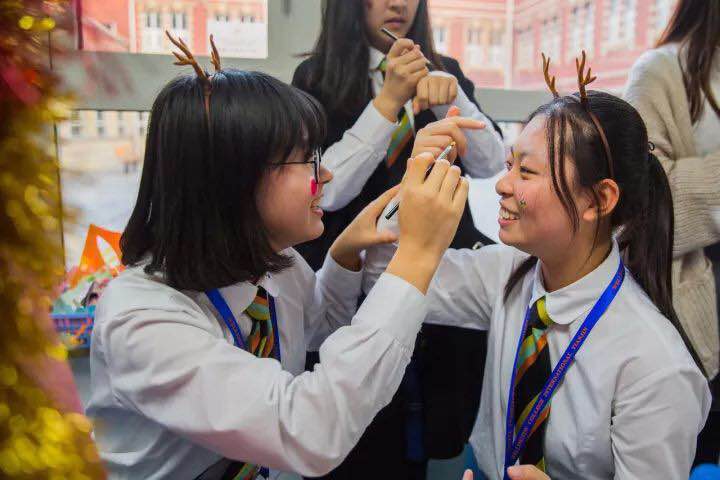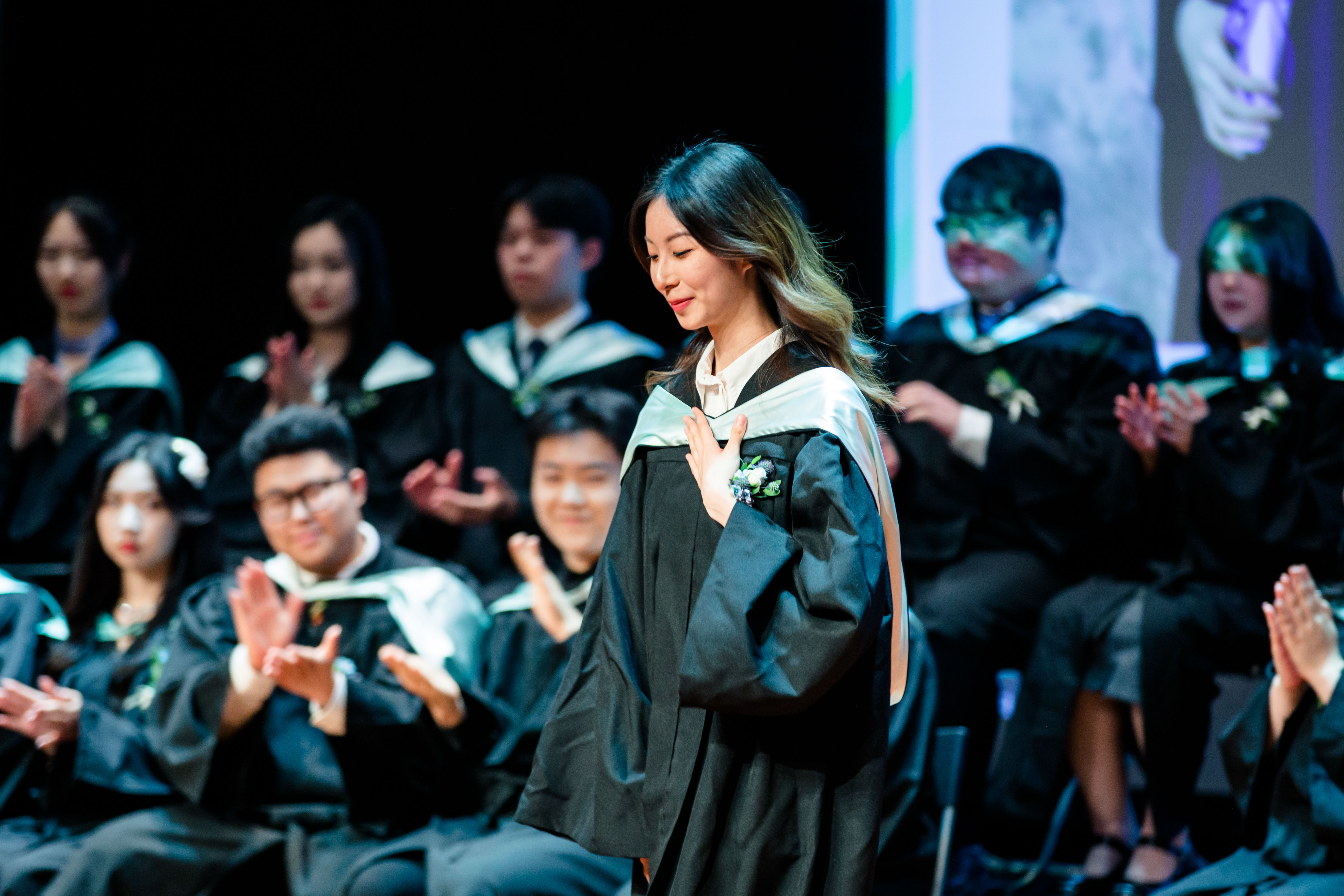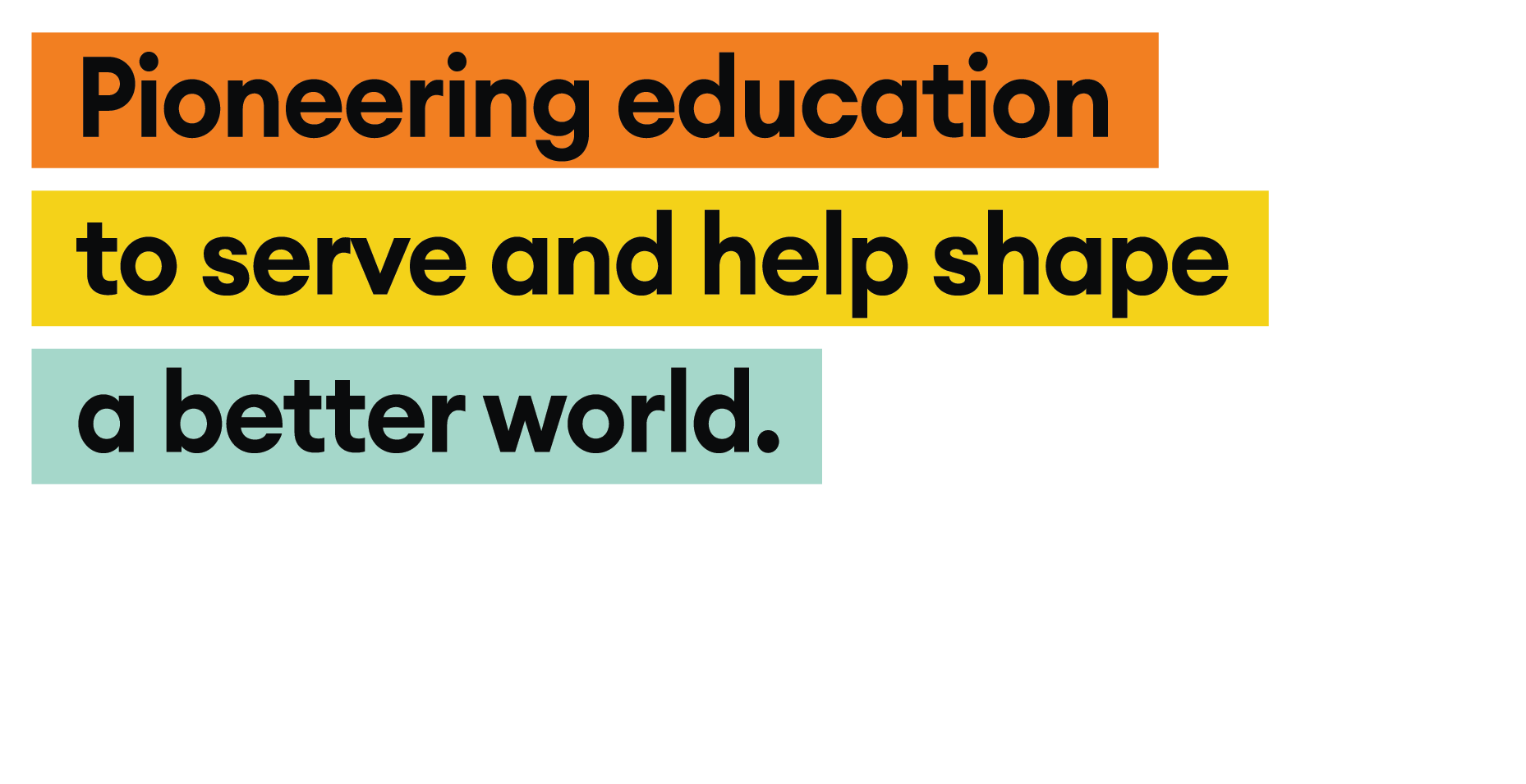Educational Insights丨The Beginnings of Child Rights
07 Nov 2019
In this Educational Insights Series, experts from across the Wellington College group give advice, practical help and tips for parents who are keen to give further support for their children's learning. In this article from the series, Toby Roundell from Wellington College Tianjin discusses about "The Beginnings of Child Rights".


 In the article below I want to outline how the UNCRC came about – what are its roots and how it connects to a vision that I hope resonates with every member of our community and beyond. In a further article, I will look at the UNCRC in more detail; what it actually means as a whole and how specific articles within it relate to us as human beings, as a society and in our understanding and practice of education.
In the article below I want to outline how the UNCRC came about – what are its roots and how it connects to a vision that I hope resonates with every member of our community and beyond. In a further article, I will look at the UNCRC in more detail; what it actually means as a whole and how specific articles within it relate to us as human beings, as a society and in our understanding and practice of education.

 Eleven years later in 1959, The UN General Assembly fully adopted a Declaration of the Rights of the Child that recognized the importance of play, a supportive environment and health care. Slowly the scope and understanding of child rights was expanding. It is also interesting that Afghanistan proposed in an accompanying resolution that all governments should recognize these rights and promote the declaration as widely as possible. This was a critical shift towards prioritizing the legislation of child rights, albeit in this case, an unsuccessful one.
Twenty years later, in response to a growing global desire to push child well-being forward, UNESCO launched the International Year of the Child as a means to draw attention to issues in child welfare including children’s malnutrition and lack of access to education. Many of the initiatives from the International Year of the Child eventually fed into the 1989 Convention on the Right of the Child.
Eleven years later in 1959, The UN General Assembly fully adopted a Declaration of the Rights of the Child that recognized the importance of play, a supportive environment and health care. Slowly the scope and understanding of child rights was expanding. It is also interesting that Afghanistan proposed in an accompanying resolution that all governments should recognize these rights and promote the declaration as widely as possible. This was a critical shift towards prioritizing the legislation of child rights, albeit in this case, an unsuccessful one.
Twenty years later, in response to a growing global desire to push child well-being forward, UNESCO launched the International Year of the Child as a means to draw attention to issues in child welfare including children’s malnutrition and lack of access to education. Many of the initiatives from the International Year of the Child eventually fed into the 1989 Convention on the Right of the Child.



 As the 30 anniversary approaches it is important for our generation and for future generations to reflect on the contents of the UNCRC. It is up to us to take individual and collective responsibility to ensure that children are empowered and knowledgeable in their rights. At Wellington College International Tianjin, we have been exploring the articles with senior students in weekly assemblies and reflecting on how its contents inform and frame our provisions and educational programs. In my next article, I will explore the contents of the Convention, how they relate to us both at the local level and at the national level and I will analyze how a combination of 5 articles can be used to assess educational programs.
As the 30 anniversary approaches it is important for our generation and for future generations to reflect on the contents of the UNCRC. It is up to us to take individual and collective responsibility to ensure that children are empowered and knowledgeable in their rights. At Wellington College International Tianjin, we have been exploring the articles with senior students in weekly assemblies and reflecting on how its contents inform and frame our provisions and educational programs. In my next article, I will explore the contents of the Convention, how they relate to us both at the local level and at the national level and I will analyze how a combination of 5 articles can be used to assess educational programs.

From the Pastoral & Safeguarding Lead / Steering Committee Chair – CIS Toby Roundell
The start of the 2019-20 academic year has seen some important landmarks for Wellington and for China. In September, we celebrated with our founder, Joy Qiao, Wellington College Education (China)’s 10th Anniversary and reflected on the amazing journey Wellington has made since 2009. In October, the whole of China celebrated its 70th Anniversary with a stunning military and civilian parade topped off with a display of fireworks that was breathtaking. There is, however, another anniversary coming up in November which brings together a vision shared by nations across the world including China and a vision that is also central to our mission at Wellington College. This is the 30th Anniversary of the United Nations Convention on the Rights of The Child (UNCRC).
Joy Qiao's speech for Wellington College Education (China)’s 10th Anniversary
What is the United Nations Convention on the Rights of the Child (UNCRC)? The UNCRC is a statement that explains how individuals, societies and governments must work together to ensure that all children can enjoy their rights. These rights cover all aspects of a child’s life: civil, political, economic, social and cultural. The convention is ratified by China along with every other nation of the world bar one and underpins the safeguarding principles of child protection in many schools and colleges around the world including our own. In the article below I want to outline how the UNCRC came about – what are its roots and how it connects to a vision that I hope resonates with every member of our community and beyond. In a further article, I will look at the UNCRC in more detail; what it actually means as a whole and how specific articles within it relate to us as human beings, as a society and in our understanding and practice of education.
In the article below I want to outline how the UNCRC came about – what are its roots and how it connects to a vision that I hope resonates with every member of our community and beyond. In a further article, I will look at the UNCRC in more detail; what it actually means as a whole and how specific articles within it relate to us as human beings, as a society and in our understanding and practice of education.
The Beginnings of Child Rights
Early in the 20th Century, children were not protected. Many children were expected to work alongside adults in unsafe and appalling conditions. Children had no rights and many parents, especially the poor, were not legally empowered in their parental roles. A series of events and declarations over the last hundred years has slowly changed international standards in relation to child rights and has brought greater global and political awareness to the injustices laid upon children. The journey to today has been a long one. It started in response to the horrors of the First World War. In 1924, Eglantyne Jebb, founder of the Save the Children Fund, drafted the Geneva Declaration on the Rights of the Child. The Declaration was adopted by the League of Nations and was important because it was the first time that a group of countries agreed to an articulation that protected children from exploitation and addressed the developmental needs of children.
Eglantyne Jebb Founder of the Save the Children Fund
The original Geneva Declaration on the Rights of the Child is a short 5 article document. It was not legally binding to countries that signed up to it but pointed out the obligations that adults have to children and stated that humanity in general “owes to the child the best that it has to give”. The Geneva Declaration was expanded in proceeding years, but an effort by the League of Nations in 1934 to legalize its contents to its signatories was unsuccessful. Nevertheless, the processes for building a more comprehensive response to child rights (and human rights) had begun. In 1948, in the landmark “Universal Declaration of Human Rights” (UDHR), the UN General Assembly proclaimed in Article 24 (b): “Motherhood and childhood are entitled to special care and assistance.” The UDHR also stipulated that every human being has a right to an education that is “directed to the full development of human personality” and that parents have a “right to choose the kind of education that shall be given to their children” (Article 25 b;c). This was the first international statute that recognized the primacy of motherhood and parenthood. And in the context of ‘every human being’ its pronouncement on education certainly broadened the concepts of what a truly international education is, away from privilege towards a universal ideal. Eleven years later in 1959, The UN General Assembly fully adopted a Declaration of the Rights of the Child that recognized the importance of play, a supportive environment and health care. Slowly the scope and understanding of child rights was expanding. It is also interesting that Afghanistan proposed in an accompanying resolution that all governments should recognize these rights and promote the declaration as widely as possible. This was a critical shift towards prioritizing the legislation of child rights, albeit in this case, an unsuccessful one.
Twenty years later, in response to a growing global desire to push child well-being forward, UNESCO launched the International Year of the Child as a means to draw attention to issues in child welfare including children’s malnutrition and lack of access to education. Many of the initiatives from the International Year of the Child eventually fed into the 1989 Convention on the Right of the Child.
Eleven years later in 1959, The UN General Assembly fully adopted a Declaration of the Rights of the Child that recognized the importance of play, a supportive environment and health care. Slowly the scope and understanding of child rights was expanding. It is also interesting that Afghanistan proposed in an accompanying resolution that all governments should recognize these rights and promote the declaration as widely as possible. This was a critical shift towards prioritizing the legislation of child rights, albeit in this case, an unsuccessful one.
Twenty years later, in response to a growing global desire to push child well-being forward, UNESCO launched the International Year of the Child as a means to draw attention to issues in child welfare including children’s malnutrition and lack of access to education. Many of the initiatives from the International Year of the Child eventually fed into the 1989 Convention on the Right of the Child.



Wellington Pupils at a MUN conference
The United Nations Convention on the Rights of the Child
Sixty-five years after Jebb’s work on bringing child rights to the fore, the United Nations Convention on the Rights of the Child was launched at the UN’s General Assembly. On November 20th, 1989 the Convention was opened to signatories from nations across the globe as a legally binding international agreement. As a document it is vastly expanded from the 1924 Geneva Declaration on the Rights of the Child and covers a full scope of rights related to the economic, social, political, civil and cultural aspects of children and childhood. It is also the mostly widely ratified human rights treaty in history and has been central to changing outlooks about and transforming circumstances for children around the world. However, although the outcomes for children have improved dramatically through it, many children still do not lead fulfilled lives and are stuck in tragic circumstances that are plagued by poverty and corruption. As the 30 anniversary approaches it is important for our generation and for future generations to reflect on the contents of the UNCRC. It is up to us to take individual and collective responsibility to ensure that children are empowered and knowledgeable in their rights. At Wellington College International Tianjin, we have been exploring the articles with senior students in weekly assemblies and reflecting on how its contents inform and frame our provisions and educational programs. In my next article, I will explore the contents of the Convention, how they relate to us both at the local level and at the national level and I will analyze how a combination of 5 articles can be used to assess educational programs.
As the 30 anniversary approaches it is important for our generation and for future generations to reflect on the contents of the UNCRC. It is up to us to take individual and collective responsibility to ensure that children are empowered and knowledgeable in their rights. At Wellington College International Tianjin, we have been exploring the articles with senior students in weekly assemblies and reflecting on how its contents inform and frame our provisions and educational programs. In my next article, I will explore the contents of the Convention, how they relate to us both at the local level and at the national level and I will analyze how a combination of 5 articles can be used to assess educational programs. Related Articles

Unlocking Global Educational Opportunities21 Mar 2025
Ms Keer XuUniversity Counsellor "Breaking boundaries in education, igniting limitless horizons: The Wellington College Tianjin Annual University Fair opens a global gateway for students and families,
Read More

Introducing 2025 EdFest Speakers21 Mar 2025
China Festival of Education We are thrilled to announce the lineup of speakers for the 2025 China Festival of Education. On Saturday 12 April we will bring together leading educators, executives and t
Read More

Global Cuisine Event Highlights in Wellington10 Jan 2025
Last semester, Wellington College Tianjin, in collaboration with Sodexo, hosted an array of vibrant food-themed events. Centred around the themes of "Global Citizenship" and "Sustainable Development,
Read More





 Channel
Channel 
 Linkedin
Linkedin  Weibo
Weibo  Facebook
Facebook  Ins
Ins 







